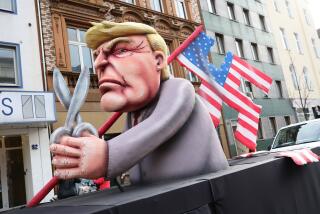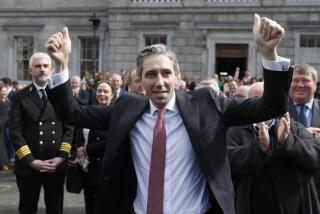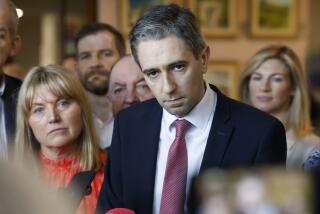From comedians to pop stars, some world leaders take office with little or no political experience
Generally speaking, a prerequisite for becoming a world leader is political experience. But not always.
Over the years, presidents, prime ministers and legislators have come from all walks of life. In their previous careers some were musicians, athletes or celebrities — even comedians.
Take former Haitian President Michel Martelly (also known by his stage name Sweet Micky). For more than a decade, Martelly was a successful singer before becoming president in 2011.
Certainly plenty of thespians have made the leap into politics: esteemed British actress Glenda Jackson, who served in Parliament; Fred Grandy, former Iowa congressman best known as Gopher on the “The Love Boat”; and George Murphy, a onetime song-and-dance man elected as U.S. senator from California in 1964. Most notably, former Hollywood actor Ronald Reagan captured the presidency in 1980, though by then he had plenty of political experience after two terms as governor of California.
And now, of course, there’s Donald Trump, the businessman and reality TV star who never held any office until elected president in 2016.
Here’s a look at four current leaders overseas who got their start in politics in unconventional ways.
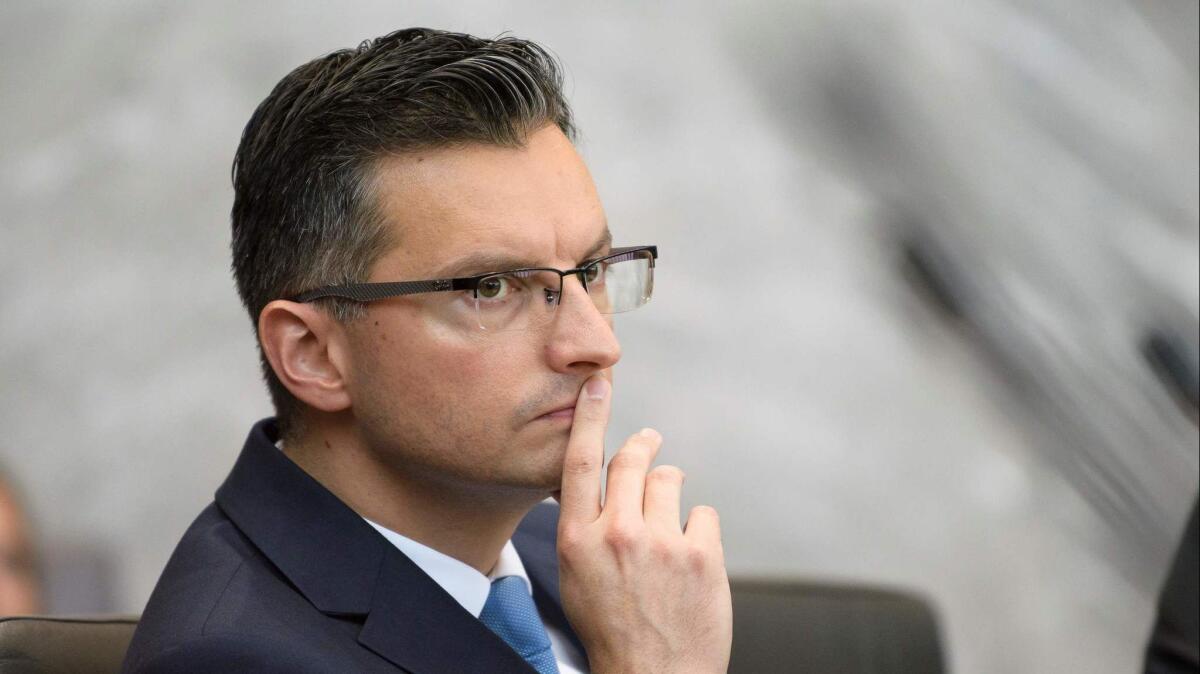
Slovenia
Former comedian Marjan Sarec on Friday was appointed prime minister-designate of Slovenia. Sarec, 40, is slated to become the youngest prime minister of the Central European nation that is also the homeland of First Lady Melania Trump, according to the official STA news agency.
After earning a degree in acting in 2011, Sarec started working for a public broadcaster and then as a comedian for a satirical show called “Radio Ga-Ga,” where he became known for his impersonation of several well-known Slovenian political figures.
Sarec later became the face of a popular fictional TV character, that of a grumpy old man, before deciding to embark on a different path.
He got a taste of politics around 2010 when he became mayor of Kamnic, a town in northern Slovenia. Sarac then formed his own moderate party — Marjan Sarec list, or LMS — four years later. The political novice made an impression when he forced a close race in the presidential election last year.
Pakistan
In his earlier years, Imran Khan, Pakistan’s newly elected prime minister, was a renowned cricket player, famously leading his country’s team to victory in the 1992 Cricket World Cup.
Khan, 65, comes from a wealthy family and studied at an elite prep school in Lahore. He continued his studies at Oxford University, then joined the national cricket team.
Khan shifted focus from cricket to philanthropy and eventually to religion and politics in the 1990s when he founded the Pakistan Tehreek-e-Insaf, or Movement for Justice, party — a stark difference from his earlier years as a celebrity heartthrob.
As time went on, Khan began to embrace politics. In turn, his call for promising to fight Pakistan’s corrupt elite made him an attractive choice for voters fed up with the nation’s economic crisis. In late July his perseverance paid off: Khan’s party won nearly twice as many seats as his closest rival’s. He was sworn in as prime minister on Saturday.
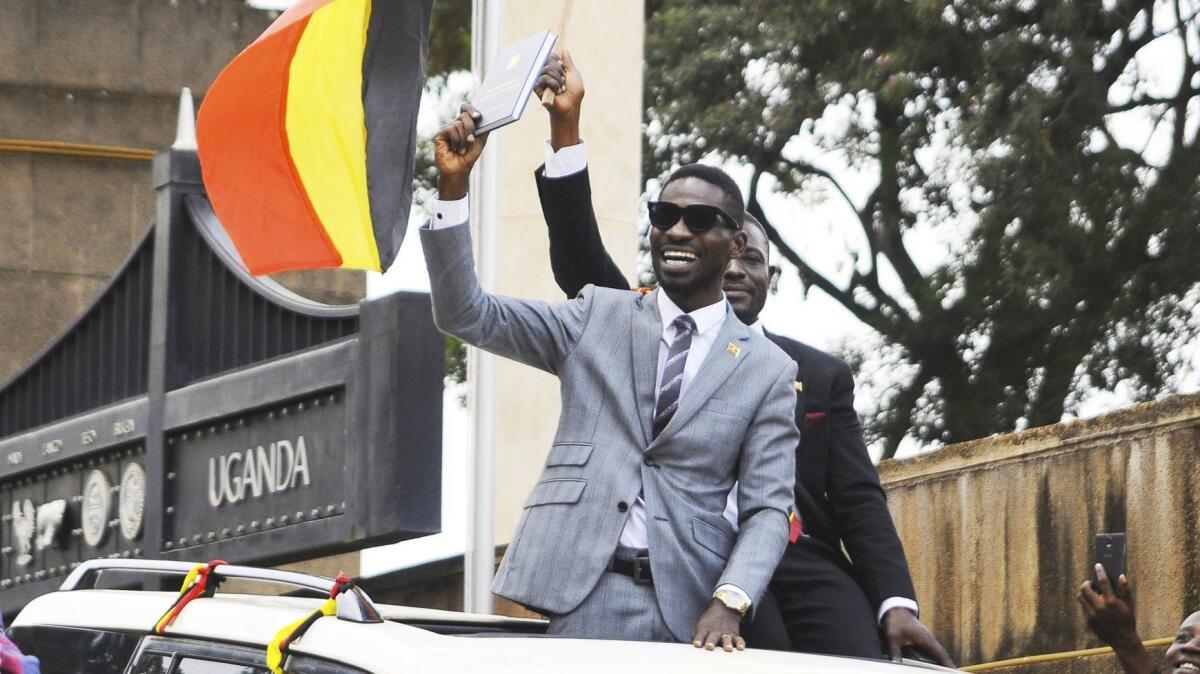
Uganda
Ugandan politician Kyagulanyi Ssentamu, better known by his stage name Bobi Wine, started making money as a pop singer in the early 2000s. Reggae rhythms influenced the music of Ssentamu, who won several awards for his songs. He also studied music, dance and drama at Makerere University.
The 36-year-old was elected to Parliament last year by rallying young voters to demand change under the failed leadership of longtime ruler Yoweri Museveni. Many supporters have even urged him to run for president in 2021.
But Ssentamu’s future as a politician looks grim.
He was charged Thursday in military court with unlawful possession of firearms and for his alleged role in attacking the president’s motorcade when clashes broke out in August. Ssentamu has not been heard from since his arrest, and activists, worried about his safety, are demanding his release, according to the Associated Press.
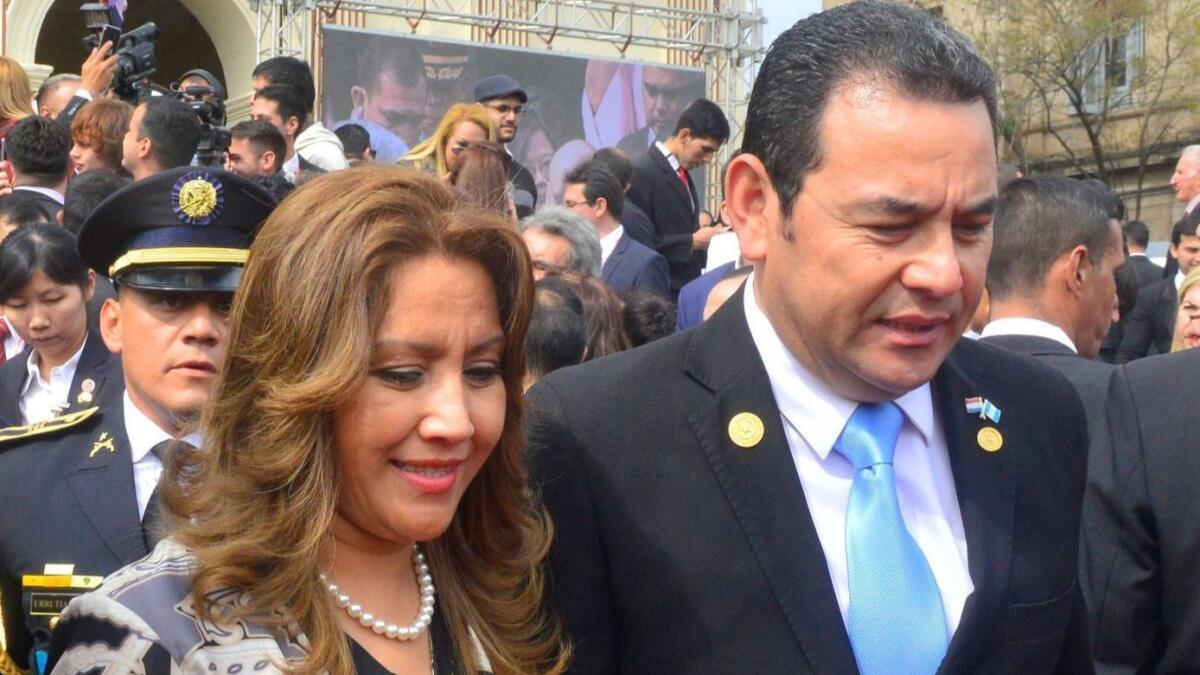
Guatemala
When Jimmy Morales ran for president in 2015, he appeared to have a slim chance of winning. Six months before the election, polls indicated that less than 1% of voters backed him. But then support for Morales skyrocketed, and he won with around 70%.
Morales, an evangelical Christian, had humble beginnings. One of three children, Morales was born in Guatemala City in 1969. When Morales was 3, his family moved in with relatives and started selling bananas to make money after his father died in a car accident.
When he was older, Morales earned money as a television comedian and TV personality in a popular show called “Moralejas.” He often played characters who were foolish and was at times criticized for his portrayal of marginalized groups.
Perhaps it was one of Morales’ most popular sketches — about a cowboy who becomes president — that foreshadowed his future.
In 2011, Morales tried his hand at politics. He ran for mayor in Mixco for the right-wing Action for National Development party but came in third.
When he ran for president it seemed like a long shot. The election came after the resignation of President Otto Perez Molina, who lost his immunity from prosecution and saw an arrest warrant issued for him in connection with a corruption scandal.
Morales leveraged being a political outsider to connect to voters and campaigned on the promise of fighting corruption using the slogan “neither corrupt nor a thief.”
He ended up winning in a landslide.
Twitter: @melissaetehad
More to Read
Start your day right
Sign up for Essential California for news, features and recommendations from the L.A. Times and beyond in your inbox six days a week.
You may occasionally receive promotional content from the Los Angeles Times.
